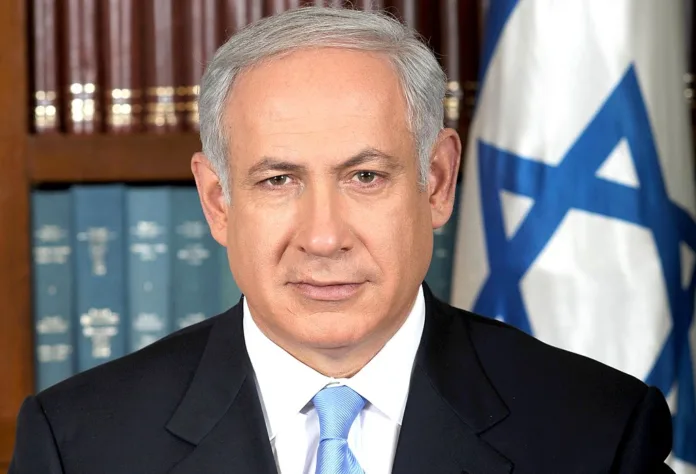Israeli Prime Minister faces tensions between centrist and far-right partners after U.S. President Joe Biden’s peace plan announcement
Benjamin Netanyahu is navigating a political minefield as he tries to maintain his coalition following U.S. President Joe Biden’s latest ceasefire proposal for Gaza. The Israeli Prime Minister is balancing the demands of centrist and far-right members of his government, who have threatened to collapse the coalition if Israel moves forward with the proposed ceasefire.
In an unexpected broadcast from the White House, Biden urged Hamas to accept Israel’s new proposal for a phased plan towards a permanent ceasefire in the nine-month war. “Israel has made their proposal. Hamas says they want a ceasefire. This deal is an opportunity to prove whether they really mean it. Hamas needs to take the deal,” Biden said.
However, Netanyahu immediately undermined Biden’s announcement by reiterating Israel’s stance that the complete destruction of Hamas remains a non-negotiable condition for ending the war. “Any deviation from that condition is a non-starter,” Netanyahu stated.
Hamas provisionally welcomed Biden’s announcement, but reiterated that a full withdrawal of Israeli troops remains a precondition for talks. Hamas official Osama Hamdan told Al Jazeera: “Biden’s speech included positive ideas, but we want this to materialize within the framework of a comprehensive agreement that meets our demands.”
Netanyahu’s far-right coalition partners, including Finance Minister Bezalel Smotrich and National Security Minister Itamar Ben-Gvir, voiced immediate opposition to the new truce plan. Ben-Gvir, head of the ultranationalist Jewish Power party, called the deal “foolhardy, constituting a victory for terrorism and a threat to Israel’s national security.”
Despite these tensions, an aide to the Prime Minister confirmed that Israel had put the framework forward, describing it as “flawed” and needing more work. Netanyahu also faces pressure from his military and intelligence chiefs, and centrist members of his war cabinet, to accept a ceasefire and hostage release deal.
Benny Gantz, a leading rival who joined Netanyahu’s emergency unity government after the October 7 attack, has threatened to resign if the Prime Minister does not commit to a “day after” plan for Gaza by June 8. Yair Lapid, Israel’s opposition leader, also urged Netanyahu to agree to the deal, stating that his centrist Yesh Atid party would support it even if right-wing factions rebelled.
Netanyahu, battling corruption charges he denies, sees staying in office as his best chance of avoiding prosecution and delaying investigations into security failures related to the October 7 assault by Hamas. During a protest in Tel Aviv led by families of hostages held by Hamas, thousands called on the government to act on the new proposal.
A joint statement from ceasefire mediators, including the US, Egypt, and Qatar, called on both Hamas and Israel to finalize the agreement to bring immediate relief to the people of Gaza and hostages’ families. Despite Biden’s description of the peace deal as an Israeli proposal, his pointed call for an end to the war seemed designed to pressure the Israeli government into negotiations.
On Sunday, the White House national security spokesperson John Kirby reiterated that if Hamas agrees to the proposal, Israel would follow suit. Israel’s nine-month war against Hamas has decimated Gaza’s infrastructure, displaced 85% of its population, and created a dire humanitarian crisis.
Biden’s support for Israel’s right to defend itself has shifted to censure over the suffering and death in Gaza, following widespread criticism at home. The US remains Israel’s most important ally and principal weapons supplier. Ending the conflict in Gaza would be a significant foreign policy achievement for Biden, who faces a challenging re-election campaign in November.
Analysis:
Biden’s ceasefire proposal highlights the complexities of Israeli politics and the ongoing conflict with Hamas. From a political perspective, Netanyahu’s coalition faces a severe test. His far-right partners oppose any ceasefire, viewing it as a capitulation to terrorism. This perspective emphasizes national security and a hardline approach to Hamas, which they believe should be dismantled entirely.
On the other hand, centrist and left-wing factions within the Israeli government, as well as military and intelligence leaders, push for a ceasefire to end the humanitarian crisis in Gaza and secure the release of hostages. This view prioritizes immediate human relief and the long-term stability that could come from negotiations and rebuilding efforts.
Sociologically, the conflict continues to affect Israeli and Palestinian societies deeply. In Israel, weekly protests in Tel Aviv underscore the public’s demand for action on hostage releases and a sustainable peace plan. In Gaza, the war’s devastation has left a large portion of the population displaced, exacerbating existing tensions and humanitarian needs.
Economically, the prolonged conflict has strained resources on both sides. Gaza’s infrastructure is in ruins, requiring extensive international aid for reconstruction. Israel’s ongoing military operations and the political instability within its government also bear significant costs, both financially and in terms of global diplomatic relations.
From a gender and minority perspective, the conflict’s impact on women and children in Gaza is particularly severe. Displacement, loss of family members, and limited access to basic needs such as food, water, and medical care disproportionately affect these groups. In Israel, families of hostages, many of whom include women and children, face ongoing trauma and uncertainty.
The proposed ceasefire plan, with its phased approach, aims to address these multifaceted issues. The first phase involves a six-week ceasefire and a limited exchange of hostages and prisoners. This step aims to build trust and provide immediate relief. The second phase would see a complete Israeli withdrawal from Gaza and a commitment to a lasting truce, setting the stage for the final phase focused on Gaza’s administration and reconstruction.
However, achieving these goals requires significant political will and compromise, particularly from Netanyahu’s government. The Prime Minister’s balancing act between appeasing far-right coalition partners and addressing the humanitarian and political pressures highlights the challenges of navigating such a deeply entrenched conflict.
